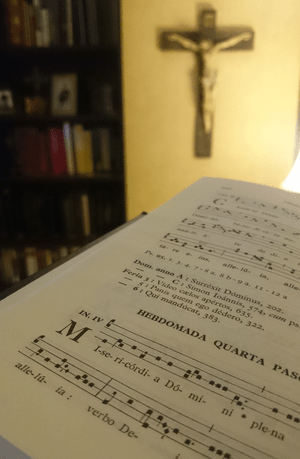
 AST WEEK, I suggested an enjoyable way to pray during the Year of Mercy; and this week, I would like to make some suggestions that are not as relaxing, but require active works from us. As followers of Christ, we are all called to sanctify ourselves and others around us. One way to do that, especially during this Jubilee Year of Mercy, is to perform the works of mercy. Works of mercy are acts of both penance and charity, and they help lead us and others to greater holiness. There are two categories of works of mercy: corporal works of mercy which concerns the material needs of others and spiritual works of mercy which concerns the spiritual needs.
AST WEEK, I suggested an enjoyable way to pray during the Year of Mercy; and this week, I would like to make some suggestions that are not as relaxing, but require active works from us. As followers of Christ, we are all called to sanctify ourselves and others around us. One way to do that, especially during this Jubilee Year of Mercy, is to perform the works of mercy. Works of mercy are acts of both penance and charity, and they help lead us and others to greater holiness. There are two categories of works of mercy: corporal works of mercy which concerns the material needs of others and spiritual works of mercy which concerns the spiritual needs.
My suggestions are based on the seven spiritual works of mercy. Sacred music is for the glory of God and the sanctification, the edification of the faithful, just as St. Pius X said. Here are a few ways that we, church musicians, can help others spiritually through music:
1. To instruct the ignorant – Through doctrinal and orthodox liturgical music, we can help people learn more about the Catholic faith. This can be accomplished through singing the Creed and traditional hymnodies. Even though hymnodies come from the Protestant tradition, they are very effective in this regard. And of course, the Creed is our believes and singing the profession of faith help us to think more deeply on the text.
2. To counsel the doubtful and to admonish sinners – Through the sacred scripture in the church music, those who are doubtful can be counseled. We can also help people to listen to the Word of God, to reflect on their own lives and to live more like Christ. We perform this work of mercy every time when we chant the propers.
3. To bear wrongs patiently and to forgive offences willingly – As musicians, we are constantly being judged by others. When we face negative comments, let’s try to be polite and stay positive. We are called to be charitable to others even when they offend us with words.
4. To comfort the afflicted – Through the beauty of the Church’s music, we can bring the afflicted brothers and sisters comfort and lead to God, who is the source of all beauty. True sacred music can heal wounded souls and feed spiritual hungers.
5. To pray for the living and the dead – I have stressed the importance of prayer many times. Prayer is the key element of sacred music. We must remember to make our singing prayers to God. And when we pray, don’t just pray for ourselves, but also for those who are around us and the Church Suffering.
Hopefully, most of us are already doing these works of mercy as we provide music for liturgies. But it is never too late to start!
“Be merciful, just as your Father is merciful.” — Luke 6:36
